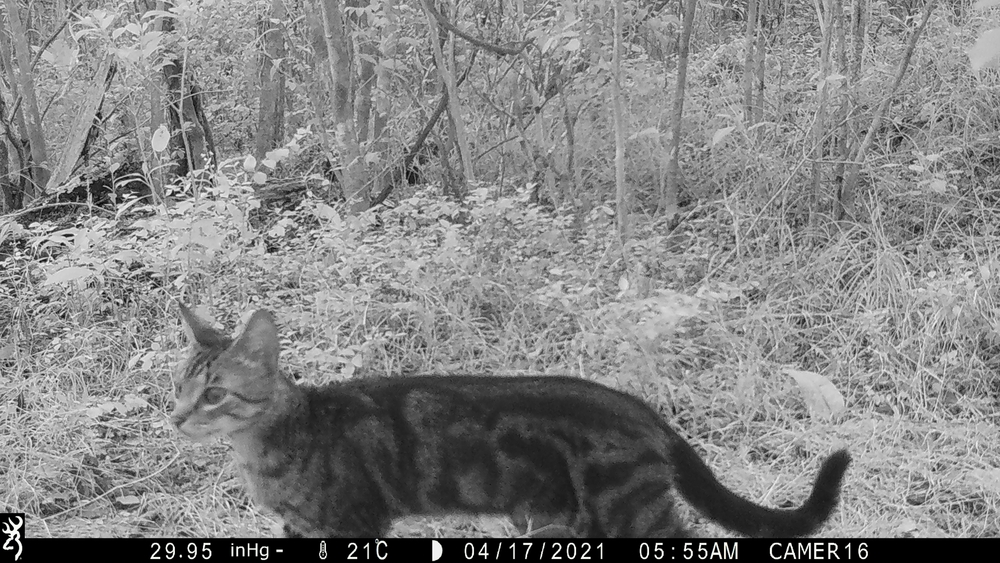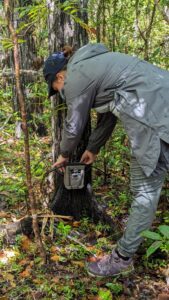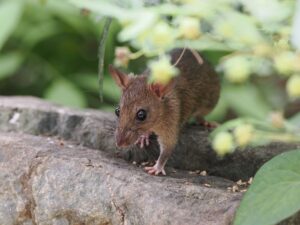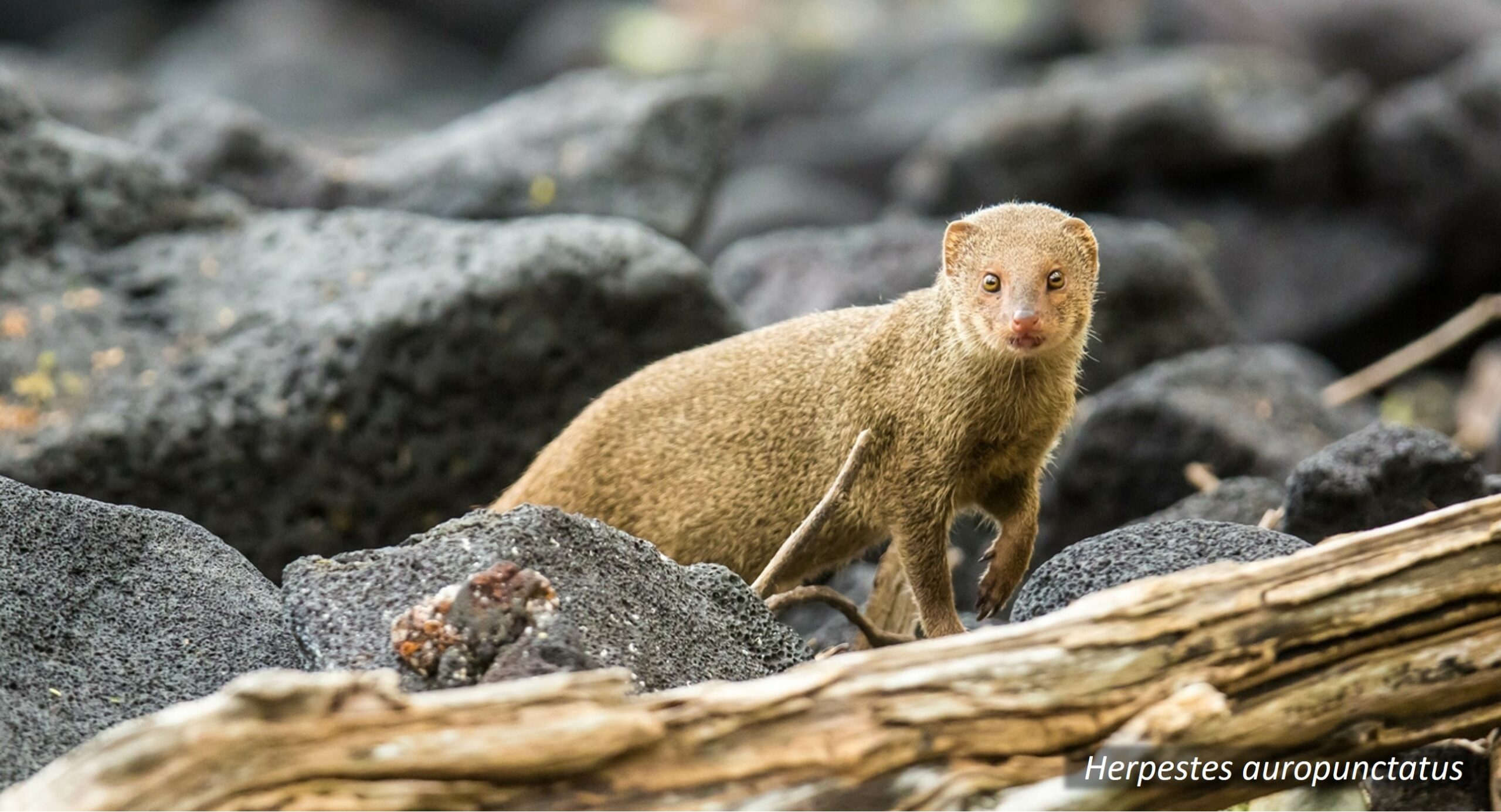The Caribaea Initiative association, dedicated to combating invasive alien species for years, has just launched its most ambitious project to date: CIMBA. This project aims to better understand and control the impact of exotic mammals on Caribbean biodiversity, a significant threat that requires a multidisciplinary approach combining research, action, and awareness.
Invasive alien species: a growing threat to Caribbean biodiversity
Invasive alien species (IAS) are one of the main threats to global biodiversity. Their impact is particularly devastating in island ecosystems, where native species are especially vulnerable due to their evolutionary isolation. Exotic predatory mammals, such as rats, mongooses, stray cats, and dogs, severely threaten a wide range of native Caribbean species, including endemic birds and small reptiles.
For years, Caribaea Initiative has prioritized the study and management of IAS. Projects such as MERCI, dedicated to exotic reptiles, and DEVIMTOR, which focuses on freshwater turtles, have allowed the association to develop solid expertise in this field. Additionally, other projects, like ESPACYPA, which studies game bird species, have already involved collecting data on exotic mammals through camera traps. All these projects have provided the experience and expertise needed to launch a larger-scale initiative specifically dedicated to exotic predatory mammals: the CIMBA project.

Cats are frequently observed via our camera traps, as here as part of the PROSPOVERG project
The CIMBA project: unprecedented ambition
Launched last month, the CIMBA project (“Controlling the Impact of invasive Mammals on Biodiversity in the Antilles”) is the most ambitious project ever undertaken by the association. By combining multiple complementary approaches, CIMBA aims to develop and implement a coordinated strategy to mitigate the impact of invasive exotic mammals across several Caribbean territories. Over the next three years, a substantial portion of our team, strengthened by new recruits, will focus on this project.

Yuna Mélane, PhD student, installs a camera trap whose data will feed both the ESPACYPA project and the CIMBA project
In line with our mission to train young researchers, the CIMBA project will also involve Caribbean students, offering master’s internships and doctoral opportunities. Yuna Mélane, a Guadeloupean student supported by Caribaea Initiative since her master’s studies on IAS, began her PhD last summer, focusing on exotic predatory mammals in close connection with the CIMBA project.
The project also has a significant collaborative dimension across the Caribbean, involving two key local organizations: FOKAL Foundation in Haiti and Grupo Jaragua in the Dominican Republic. This collaboration ensures coordinated actions and shared knowledge across territories.
Our new project also allows us to continue our partnership with the Interreg Caribbean program, which has provided substantial financial support and renewed its trust after the success of the MERCI project.
The key steps of the CIMBA project
The CIMBA project is built around four interconnected components that tackle the challenge of exotic predatory mammals from complementary angles.
A first phase will focus on analyzing the spatial distribution and impact of four exotic predatory mammal species—rats, mongooses, stray cats, and dogs—on local biodiversity. This research will take place in protected areas across Guadeloupe, Haiti, and the Dominican Republic, using advanced techniques such as camera traps and dietary analysis to better understand their ecological effects.
Another critical aspect of the project involves improving the effectiveness of control measures. In collaboration with natural resource managers, we will test and refine various techniques to reduce the presence of these species while minimizing unintended impacts on the environment.

The black rat poses a threat to local biodiversity, but little data exists on its spatial ecology.
Given the regional nature of the issue, the project places a strong emphasis on coordination. A network of actors will be established to facilitate communication, share findings, and harmonize efforts across the Caribbean, ensuring that actions undertaken in one territory can benefit others.
Finally, a comprehensive awareness campaign will be launched to engage local populations. By highlighting the ecological and health risks posed by invasive mammal species, this campaign aims to encourage public support for control measures, a critical factor for the long-term success of the project.
A crucial project for Caribbean biodiversity
Launched last month, the CIMBA project holds significant promise for conservation efforts. By combining science, concrete actions, and public awareness, we aim to make a substantial contribution to protecting Caribbean biodiversity while remaining committed to our mission of training the next generation of Caribbean researchers.
The CIMBA project is co-funded by the INTERREG Caribbean program under the European Regional Development Fund.


